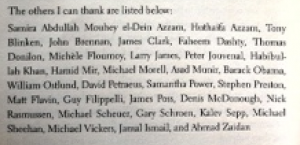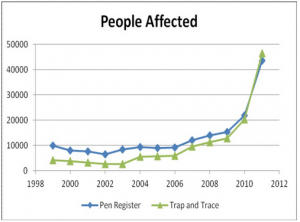Even Dana Milbank Wonders Why Darrell Issa Is Doing Mike Rogers’ Job
After it became clear that the Republicans hoped to use the Benghazi attack to turn Obama into Jimmy Carter, I predicted what would happen as Darrell Issa and Romney surrogate Jason Chaffetz investigated: there would be trouble with classified information.
And while in yesterday’s hearing they made State look like it was withholding information when Under Secretary Patrick Kennedy told Issa that a binder State had provided (presumably put together by the Accountability Review Board) was classified in its totality, even while individual documents in it were unclassified, Issa proceeded to enter a slew of unclassified documents from it into the record.
But it was Chaffetz who complained most loudly, after Deputy Assistant Secretary of State Charlene Lamb put up a satellite image that showed both Benghazi locations (see after 55:00), and, later, after she implied there were other security resources on the ground that were not being discussed in the hearing. (Note, I’m not sure, but I think there may actually be a spook who died at the safe house, too, which would be consistent with this article’s mention of five total dead.) Chaffetz interrupted and complained that the hearing–his own hearing–was exposing sources and methods.
As Dana Milbank describes it:
Rep. Jason Chaffetz (R-Utah) was the first to unmask the spooks. “Point of order! Point of order!” he called out as a State Department security official, seated in front of an aerial photo of the U.S. facilities in Benghazi, described the chaotic night of the attack. “We’re getting into classified issues that deal with sources and methods that would be totally inappropriate in an open forum such as this.”
A State Department official assured him that the material was “entirely unclassified” and that the photo was from a commercial satellite. “I totally object to the use of that photo,” Chaffetz continued. He went on to say that “I was told specifically while I was in Libya I could not and should not ever talk about what you’re showing here today.”
The satellite image was commercial, available to al Qaeda as readily as State. The other security resources belonged to the CIA “safe house” that had been compromised before the attack, which is one thing that led to the deaths of the two former SEALs; Chaffetz was trying to keep hidden a safe house that had already been compromised by poor spycraft or espionage. In addition, Lamb and Kennedy implied that a video showing the attack was being withheld by CIA.
Understand what this means. This hearing focused on the complaints of two security whistleblowers, complaining, credibly, about State trying to shift security responsibilities to State resources, which in this case meant relying on Libyan militia (though the February 17 Brigade appears to have acquitted itself credibly). But that part–the part Romney’s surrogate is trying to make a campaign issue–is only a part of what what went wrong on September 11. Yet Chaffetz went out his way to shield the other failures–the ones made by CIA, which traditionally has close ties to the linguistically skilled Mormon Church.
Though Issa (who kept getting whispers from a guy who apparently used to be a staffer on the House Intelligence Committee) did reveal this bit.
In this hearing room we’re not going to point out details of what may still in fact be a facility of the United States government or more facilities.
FWIW, I’ve implicitly suggested that when DOD used 3 C-130s to ferry a single FBI team to Benghazi to investigate, there may have been a lot more on those planes, some of which presumably didn’t leave with the FBI team.
In any case, this hullabaloo demonstrates what I said weeks ago: if Republicans wanted to conduct their own investigation of this attack (and there’s no reason why they shouldn’t do so), they should have done it in the House Intelligence Committee. Here’s Milbank again.
The Republican lawmakers, in their outbursts, alternated between scolding the State Department officials for hiding behind classified material and blaming them for disclosing information that should have been classified. But the lawmakers created the situation by ordering a public hearing on a matter that belonged behind closed doors.
Republicans were aiming to embarrass the Obama administration over State Department security lapses. But they inadvertently caused a different picture to emerge than the one that has been publicly known: that the victims may have been let down not by the State Department but by the CIA. If the CIA was playing such a major role in these events, which was the unmistakable impression left by Wednesday’s hearing, having a televised probe of the matter was absurd. [my emphasis]
But apparently, Rogers–who as Chair of the Intelligence Committee is of course too close to the intelligence agencies–doesn’t want to get to the bottom of this. And neither, apparently, do Issa and Chaffetz, who are conducting an investigation that by its nature will be incomplete.
There’s one more irony in all this. This very hearing room is the one where, five years ago, Republicans–including Issa–defended the right of the Executive Branch to insta-declassify things like a CIA officer’s identity for political gain. This time around, Republicans went out of their way to hide unclassified information that might reveal how the CIA fucked up.
This country’s treatment of classified information–which feeds partisan selective declassification about as often as it keeps us safer–really makes us fundamentally dysfunctional as a democracy.
Update: Cryptome has the super secret publicly available images here.


